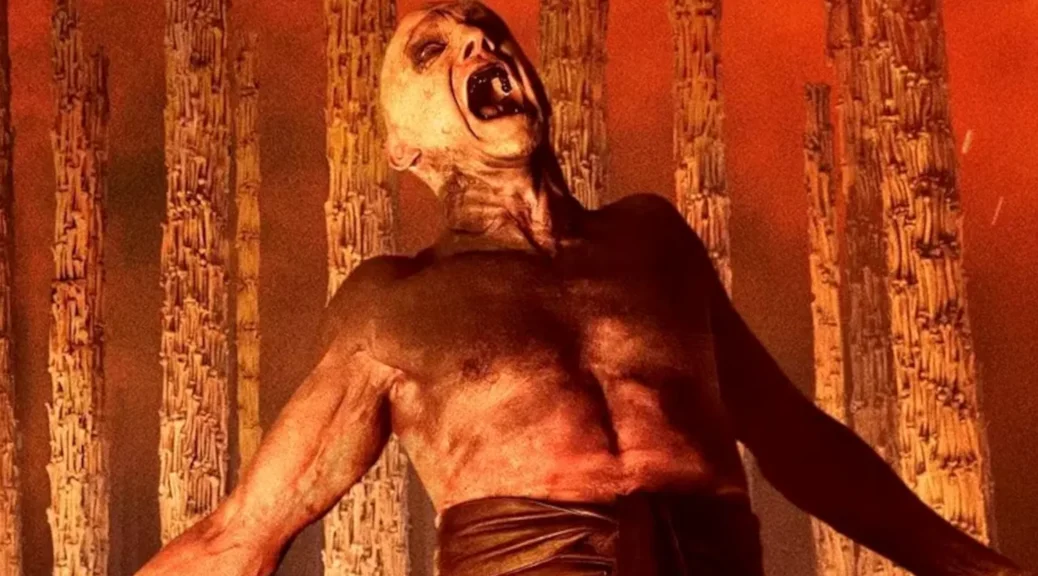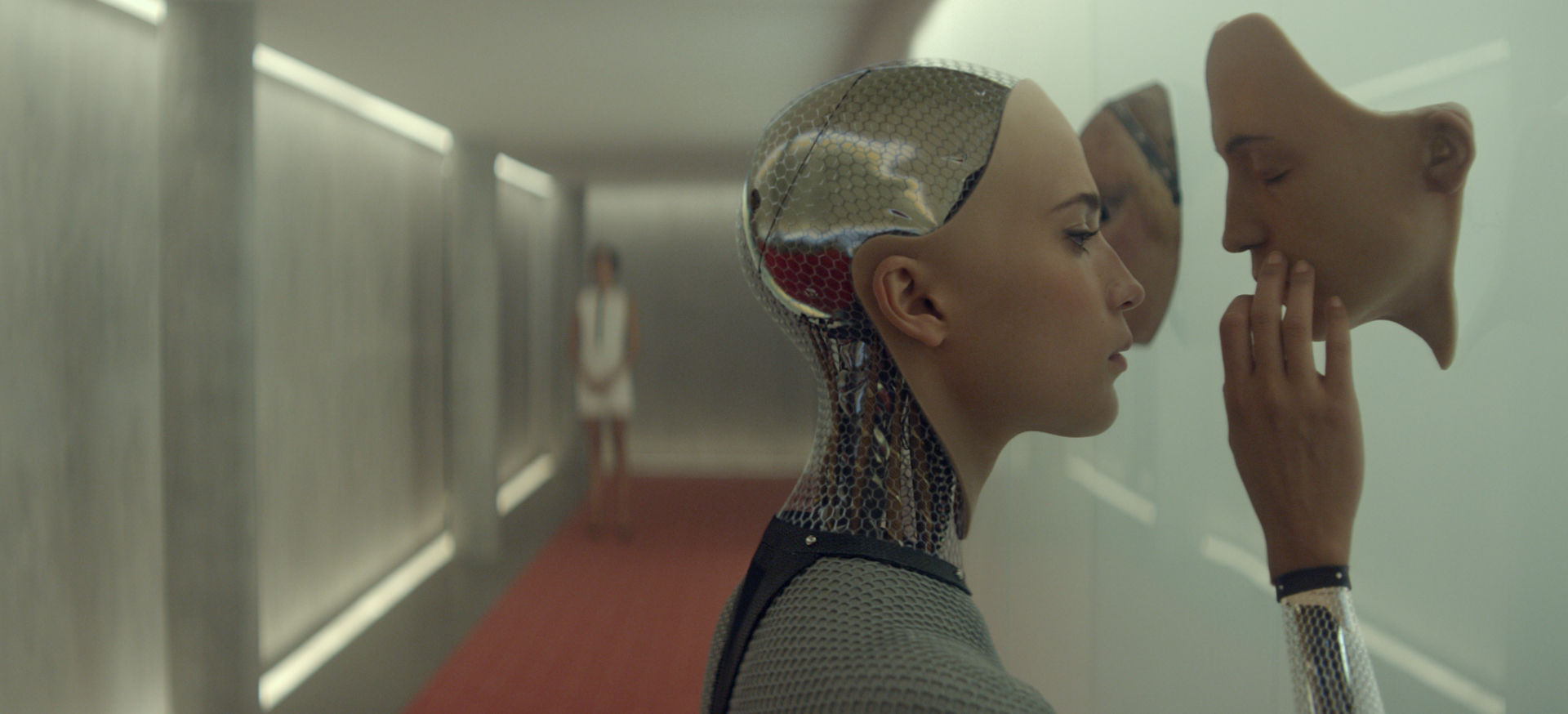28 Years Later: The Bone Temple
by Hope Madden & George Wolf
Maybe you enjoyed last year’s coming-of-age survival story masquerading as horror, 28 Years Later. Respect. But if you believe the film lacked the genuine terror required for this franchise, director Nia DaCosta has you covered.
She delivers the first great horror film of the year with 28 Years Later: The Bone Temple, also written by Alex Garland. It picks up the most intriguing threads left untied last time: those of the band of Clockwork Orange-esque marauders who saved young Spike (Alfie Williams) from the infected, and the beautiful soul covered in iodine and living amongst the bones, Dr. Ian Kelson (Ralph Fiennes).
There is more visceral horror in the first three scenes of DaCosta’s film than in the entire hour and fifty-five minutes of the previous installment.
Spike finds himself unwittingly and unwillingly one of the Jimmys, the seven blond-wigged disciples of Sir Jimmy Crystal (O’Connell). Meanwhile, die-hard Duran Duran fan (hell yeah!) Dr. Kelson might be making friends with Samson (Chi Lewis-Parry), the pantsless alfa-infected who left such an impression in the last film.
As the two stories lead toward inevitable collision, Garland, who wrote the 2000 genre masterpiece 28 Days Later before writing and directing some of the best genre films of the 2000s (Ex Machina, Annihilation, Men, Civil War), delivers smart storytelling, impeccable world building, and scares aplenty.
And again, Garland is able to display an intense social conscience, with timely and relevant nods to humanity fighting cruelty for survival, and the desperate allure of demagogues.
O’Connell’s never given a bad performance, and thanks to Sinners, the world knows what he can do with a villain role. But the man’s been doing the charismatic sadist better than any actor since his 2008 breakout, Eden Lake. His performance here is diabolical and unsettlingly funny.
Fiennes is again in wonderous form, soulful, earnest and dear. DaCosta surrounds them both with a strong ensemble that more than sells this story.
The filmmaker (Little Woods, Candyman, The Marvels, Hedda) returns to horror with aplomb, expertly weaving from the grimmest horrors the Jimmys can muster to the tender bromance blossoming over at the bone temple. And the climactic musical number she stages there is a thing for the ages.
Back in the summer of 2002, Danny Boyle released the single scariest movie to hit screens in a decade or more. The next two sequels are solid films. But credit DaCosta and her game and gamey cast for upping the ante to deliver everything a horror fan hoped to get last time out.








